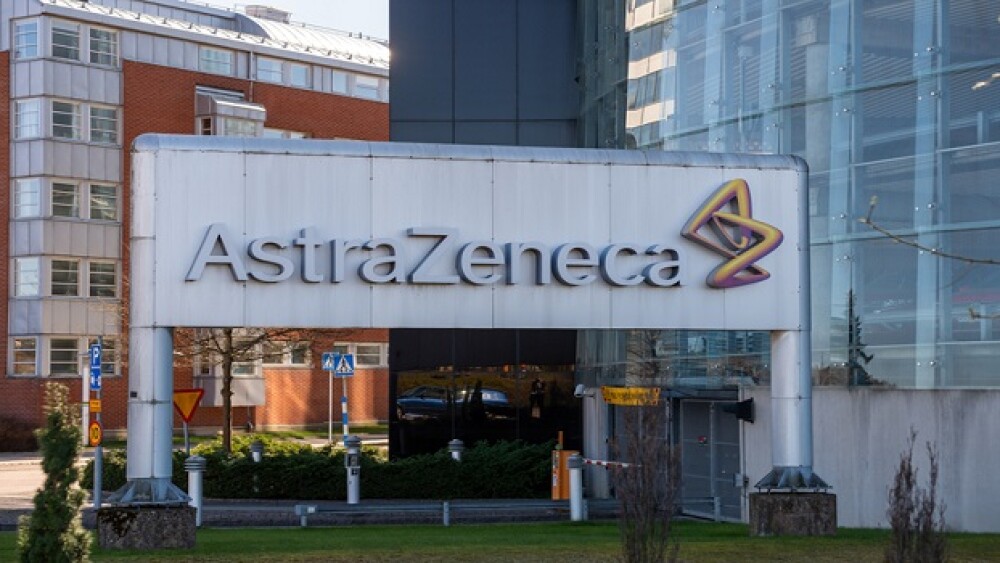The British drugmaker’s rare disease subsidiary Alexion will take on a number of Pfizer’s preclinical gene therapy programs and technologies to advance its genomic medicines pipeline.
Pictured: AstraZeneca building in Gothenburg/iStock, Wirestock
Reporting positive earnings for the second quarter, AstraZeneca is doubling down on its rare disease investment. Its subsidiary, Alexion, is acquiring a portfolio of preclinical gene therapies and technologies from Pfizer in a deal worth up to $1 billion, the companies announced Friday.
Seeking to play a leading role in genomic medicine, the buy brings a number of novel adeno-associated virus (AAV) capsids to AstraZeneca. AAV capsids have proven an effective delivery tool for gene therapy and editing.
“We are acquiring a dozen preclinical programs, some of them with entry into clinical in the next two to three years,” Alexion CEO Marc Dunoyer said in AstraZeneca’s second-quarter earnings call Friday.
Alexion, a rare disease company, was scooped up by AstraZeneca in 2020 for $39 billion. The team then acquired LogicBio for $68 million last fall to bolster its genomic capabilities to treat or cure disease at its genetic source.
A number of Pfizer employees are anticipated to join Alexion with the portfolio, growing the gene therapy team to 80, AstraZeneca CEO Pascal Soriot said on Friday’s call. Pfizer has been pulling back on early-stage rare disease research, including viral-based gene therapies, since January.
The acquisition was announced alongside AstraZeneca’s second-quarter earnings report. In the quarter, total revenue was $11.4 billion, up 6% from the same period in 2022.
First half earnings came in around $22.3 billion. The company noted that ex-COVID-19 revenue increased 16% for the first half of 2023, up 4% with COVID-19 sales included. Oncology continues to be its biggest source, accounting for 39% of revenue.
Top earners for AstraZeneca in the first half were Tagrisso—the company’s targeted therapy for types of non-small cell lung cancer—and Farxiga, its multipurpose drug for heart failure, Type 2 diabetes and chronic kidney disease. Sales in the first six months of 2023 were $2.9 billion, a 12% increase over the prior year, and $2.8 billion, 40% growth, respectively.
“Each of our non-COVID-19 therapy areas saw double-digit revenue growth, with eight medicines delivering more than $1 billion of revenue in the first half,” Soriot said in the press release.
In a third announcement Friday, AstraZeneca said Mene Pangalos, R&D executive vice president, is retiring after nearly 14 years with the company to spend more time with his family.
Pangalos will be succeeded by Sharon Barr, previously Alexion’s senior vice president and head of research and product development, effective August 1. Soriot clarified the wall of separation between AstraZeneca and Alexion; the leadership move “does not signal an integration,” he said on Friday’s call.
AstraZeneca updated its pipeline, dropping two programs for hematological malignancies in Phase I and Phase II testing. A program for cardiovascular disease was also axed. These molecules were not cut due to effectiveness but due to a narrow therapeutic index and benefit-risk profile, according to the company.
Kate Goodwin is a freelance life science writer based in Des Moines, Iowa. She can be reached at kate.goodwin@biospace.com and on LinkedIn.






